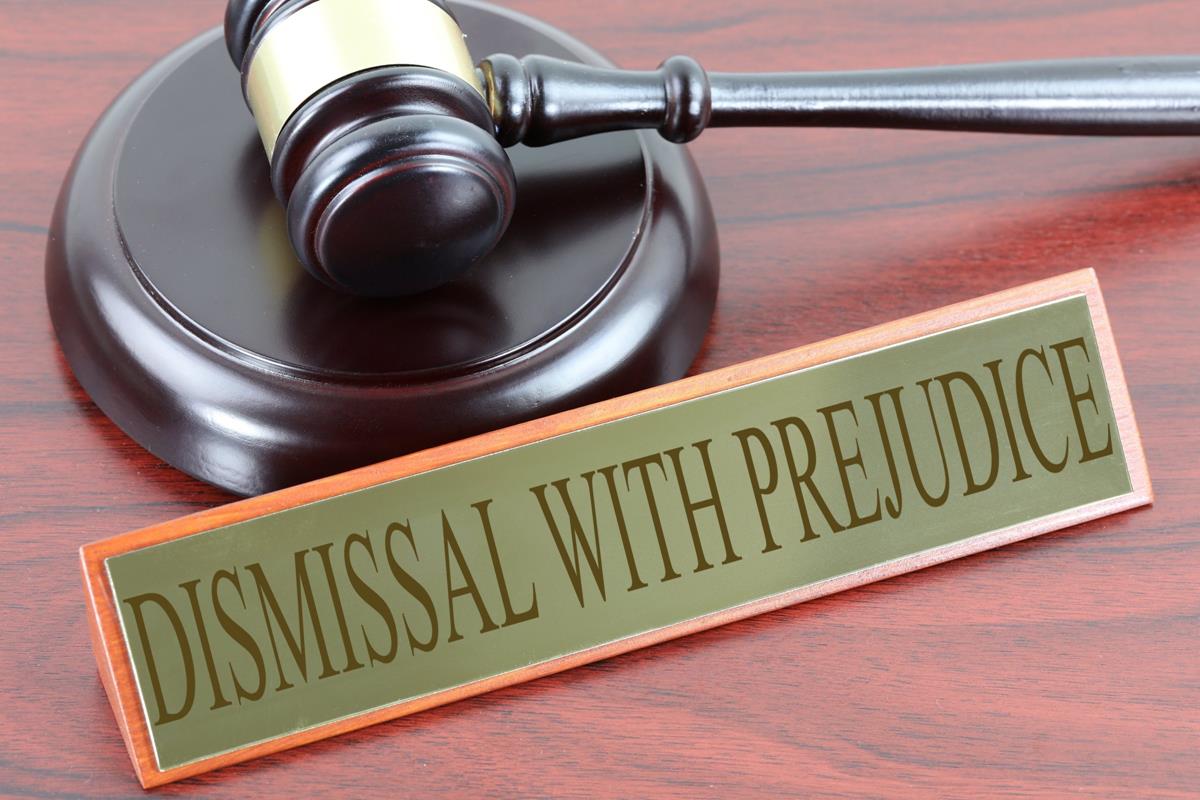In the legal world, certain phrases carry significant weight, shaping the outcomes of cases and the rights of individuals.
One such term is “with prejudice.” When a legal case is dismissed “with prejudice,” it has critical implications for all parties involved. Understanding the full meaning of this term is crucial, whether you’re involved in a lawsuit, considering legal action, or simply interested in how the law works.
This article breaks down what it means when a case is dismissed with prejudice, explores its consequences, and contrasts it with its counterpart, “without prejudice.” By the end, you’ll have a clear understanding of how this phrase impacts the future of a legal case and what it could mean for the parties involved.
What Does “With Prejudice” Mean?
In legal terms, “with prejudice” refers to the permanent closure of a case, meaning that the case is dismissed and cannot be brought back to court again. This decision is final, and the plaintiff (the person or party bringing the case) is barred from filing another lawsuit on the same grounds. A dismissal with prejudice acts as a resolution to the case and implies that the judge or court has found a valid reason to prevent the case from being reopened or retried.
The phrase most commonly arises in the context of civil lawsuits but can also apply in criminal proceedings. It indicates that the court believes the case has either been fully addressed or that legal or procedural issues make further litigation impossible.
Key Points of a Dismissal “With Prejudice”:
- Final Judgment: The case is resolved permanently and cannot be reopened.
- No Refiling: The plaintiff is prevented from bringing the same lawsuit against the defendant in the future.
- Court Authority: The court has determined that continuing the case or re-litigating the issues would be improper.
Common Reasons for Dismissal “With Prejudice”
Dismissals with prejudice often occur for several reasons. A judge may decide to issue such a ruling if they find that:
- The case lacks merit: For example, if the court determines that the lawsuit is frivolous or baseless.
- A settlement has been reached: Once both parties agree to a settlement, the case may be dismissed with prejudice to prevent future lawsuits based on the same issue.
- Repeated failures in legal procedure: If a plaintiff repeatedly fails to comply with court rules or deadlines, the court may decide that they cannot pursue the case further.
- Abuse of the legal process: This could occur if the court feels that a party is using the legal system to harass the other side without legitimate claims.
In criminal cases, a dismissal with prejudice might occur if the court finds there was prosecutorial misconduct, meaning the defendant’s right to a fair trial was violated in such a way that a retrial would be unjust.
With Prejudice vs. Without Prejudice
A dismissal “without prejudice” offers a stark contrast to one with prejudice. If a case is dismissed without prejudice, it leaves the door open for the plaintiff to file the lawsuit again. This typically happens if the case was dismissed for reasons such as:
- Procedural errors: Minor mistakes, like filing in the wrong court or failing to serve the proper paperwork on time.
- Incomplete evidence: If the plaintiff needs more time to gather necessary documents or witnesses.
With a dismissal without prejudice, the plaintiff can correct these errors and refile the case. It’s important to note that in both civil and criminal cases, dismissals without prejudice do not make a final ruling on the merits of the case.
Key Differences Between With and Without Prejudice:
| With Prejudice | Without Prejudice |
|---|---|
| Case is closed permanently | Case can be refiled |
| No opportunity for re-litigation | Plaintiff may correct issues and refile |
| Based on legal resolution or misconduct | Usually due to procedural issues |
How “With Prejudice” Affects the Parties Involved
For the plaintiff, a dismissal with prejudice can be a significant blow. Since the case cannot be filed again, it often represents a total loss in their efforts to seek legal redress. This might happen in cases where the court finds that the lawsuit is without legal merit or when the plaintiff has violated procedural rules repeatedly.
For the defendant, a dismissal with prejudice offers closure and certainty. It ensures that the legal matter is resolved, and they cannot be sued again on the same grounds. In cases where a settlement is reached, a dismissal with prejudice also provides security that the issue is resolved for good.
Both parties need to fully understand the long-term implications of this type of dismissal, as it prevents future litigation related to the same claim. It’s a final judgment, marking the end of that particular legal battle.
Real-World Example of a Dismissal “With Prejudice”
A famous example of a dismissal with prejudice can be seen in cases involving large corporations. In 2022, a class-action lawsuit against a major tech company was dismissed with prejudice. The judge ruled that the claims lacked sufficient legal grounds, preventing the plaintiffs from refiling the same case. This brought relief to the defendant, ensuring no future lawsuits on the same issue.
FAQs
1. Can a case dismissed with prejudice be appealed? Yes, while the case cannot be refiled, the plaintiff has the right to appeal the dismissal to a higher court. If successful, the case could be reopened.
2. Why would a plaintiff agree to a dismissal with prejudice? A plaintiff might agree to such a dismissal as part of a settlement agreement, ensuring the matter is resolved permanently, often in exchange for compensation or other terms.
3. Does a dismissal with prejudice affect both civil and criminal cases? Yes, the term can apply in both civil and criminal cases, though it’s more commonly seen in civil lawsuits.
4. How does “without prejudice” differ from “with prejudice”? A dismissal without prejudice allows the plaintiff to refile the case after correcting any issues, whereas with prejudice means the case is permanently closed.
5. Can a judge change a dismissal from “without prejudice” to “with prejudice”? Yes, if a plaintiff repeatedly violates court orders or fails to move the case forward properly, a judge may change a dismissal from without prejudice to with prejudice.
6. What should I do if my case is dismissed with prejudice? Consult with an attorney immediately to understand your options, including whether an appeal is possible.
Key Takeaways
- A dismissal with prejudice permanently closes a case, preventing it from being refiled in the future.
- It is often issued when a court determines that a case lacks merit, legal rules are violated, or a settlement is reached.
- “Without prejudice” allows a plaintiff to refile the case after resolving legal or procedural issues.
- This type of dismissal can apply in both civil and criminal cases.
- The decision significantly impacts both parties, giving the defendant closure and barring the plaintiff from future action on the same claim.
For more information on legal terms and procedures, always consult a licensed attorney or legal expert.
Read More: Can You Recover Emotional Damages from Product Liability?

Jonathan Hartley is a highly regarded senior criminal lawyer with over 15 years of experience in the UK legal system. He began his career at a prestigious law firm in London, where he specialized in both defense and criminal law. Known for his ability to craft compelling defense strategies, Jonathan has successfully represented clients in high-profile cases and earned multiple awards for his contributions to the field of law.
In addition to his legal practice, Jonathan is also an accomplished legal writer, contributing articles to top legal blogs and online platforms. His work not only provides valuable insights into legal matters but also meets Google’s E-E-A-T standards by delivering accurate, reliable, and trustworthy information to readers. Committed to legal ethics and public welfare, Jonathan actively participates in discussions on law and justice while educating the public through his writing.










